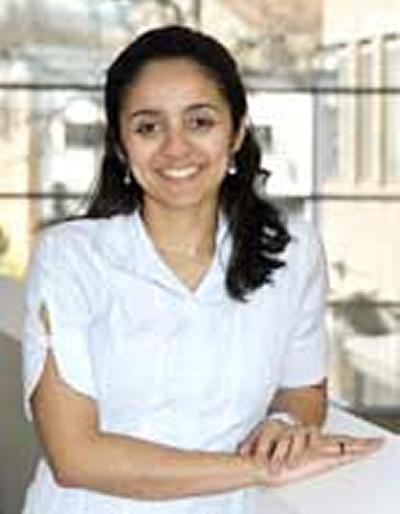Alinne Veiga MSc Social Statistics, PhD in Social Statistics, 2010
Graduate

Hi, I'm Alinne Veiga and I studied MSc Social Statistics, PhD in Social Statistics within Social Sciences: Social Statistics & Demography at the University of Southampton.
The University offers great support for its vast community of international students and this includes social and language support.
Q: Why did you choose to undertake your Postgraduate studies at the University of Southampton?
I am a returning student at the University of Southampton. I first came here in 2000 to complete a masters in Social Statistics. I heard about Southampton from two alumni who had completed their PhDs here. They could only say good things about the University and the social statistics research group that they were part of. I am now a first year PGR student in the same division in which I completed my masters several years ago. So far it has been a very good experience overall.
Southampton is one of the top universities that offers postgraduate courses in statistics, and that was the main reason for my decision to come here. The MSc Social Statistics is a very good course. It is very intensive and strongly based on practical exercises, which was what I was looking for at that time. Also, the University offers great support for its vast community of international students and this includes social and language support.
Q: How did you find living in Southampton?
One of the advantages of living in Southampton is the location. I go for walks nearby the marina or over the common, which are both lovely, enjoying the sun and the long days. Southampton is also relatively close to London which is useful.
Q: How did you find adapting to life in the UK?
When I first came, it was quite challenging due to the language barrier, homesickness, loneliness, and the different culture… but they all diminished with time. I just kept myself occupied studing for my Masters. As time passed, I got to know more people and started to make friends. Another thing that was very important for me was to try to understand the English way of life and try to adapt myself to it, remembering always to say 'please', 'thank you' and 'sorry', and of course to stand in the queues whenever there is one. To overcome the language barrier, I tried as much as possible to speak English with 'native' speakers. I also attended the English courses the University offers to international students – they are really worth going to. I bought a TV and of course a TV licence, and by watching it I improved my spoken English.
Q: How did you fund your studies?
I was only able to come to the UK to pursue my studies, both now and five years ago, after earning a scholarship. For the masters I was awarded a Population Research Training Fellowship by the Wellcome Trust and now, for the PhD, I am being funded by the Coordenacao de Aperfeicoamento de Pessoal de Nivel Superior (CAPES) of the Brazilian Ministry of Education.
The process of looking for a scholarship can be very long and tiring but is definitely worth it. There are different sources of scholarships for international students who want to come to the UK to have a degree. The British Council, for example, provides a list of institutions that offers scholarships.
Q: What do you feel you have achieved from studying at Southampton?
I finished my undergraduate studies in 1999, but was working in an institute of economic research since 1996. After completing the masters in 2001, I returned to Brazil where I worked for four more years. The completion of the masters degree was a step forward in my career because I had the chance to be part of a research group that at that time was evaluating the impact of a social policy implemented in Brazil.
My decision to return to continue my postgraduate studies was based on the fact that, although I could be part of such a research group, I still did not have the autonomy to conduct research projects on my own. I hope that, after completing the PhD degree, I will be able to participate more actively in the research environment of my country.